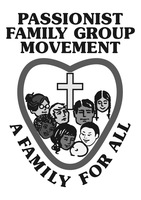Last Monday night Fr Tom gave a comprehensive report accounting for what the Province has done in response to the 2019 Provincial Chapter and looking ahead to the Chapter in July 2023. Our Chapter back in 2019 followed the 2018 Congregational General Chapter held in Rome. Chris Monaghan was invited to give the opening address at tat General Chapter and on Monday night Tom quoted a poem by Ella Wheeler Wilcox, that Chris used in the address.
One ship sails East, and another West,
By the self-same winds that blow,
'Tis the set of the sails And not the gales,
that tells the way we go.
Like the winds of the sea are the waves of time,
As we journey along through life,
'Tis the set of the soul,
that determines the goal,
and not the calm or the strife.
